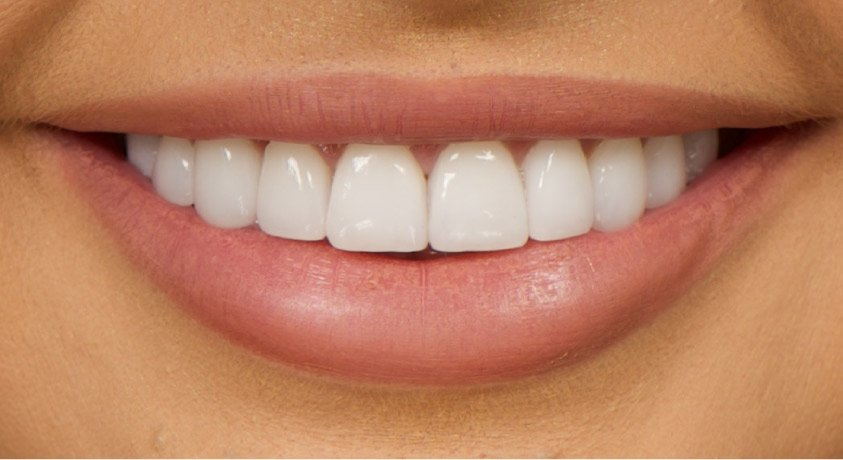A Comprehensive Guide to Dental Veneers
- Huda Batool
- Oct 2, 2024
- 3 min read
Dental veneers have gained popularity as a cosmetic dental solution for those seeking to improve the appearance of their teeth. These thin, custom-made shells are designed to cover the front surface of teeth, enhancing their color, shape, and overall aesthetics. In this comprehensive guide, we'll explore everything you need to know about Dental Veneers Cost Dubai including types, benefits, the procedure, aftercare, and cost considerations.
What Are Dental Veneers?
Dental veneers are ultra-thin, custom-made shells made from tooth-colored materials, primarily porcelain or composite resin. They are bonded to the front surface of teeth to improve their appearance. Veneers can address a variety of cosmetic concerns, including:
Discoloration: Teeth that are stained or discolored due to aging, smoking, or certain foods.
Chips and Cracks: Minor imperfections that affect the aesthetics of the smile.
Misalignment: Teeth that appear uneven or misaligned can be visually corrected with veneers.
Gaps: Spaces between teeth can be filled, creating a more uniform smile.
Types of Dental Veneers
Porcelain Veneers:
Made from high-quality ceramic, these veneers offer a natural appearance and are highly resistant to staining. They are durable and can last 10 to 15 years with proper care.
Composite Resin Veneers:
Made from a tooth-colored resin material, these veneers are less expensive than porcelain options but may not last as long. They can be applied in a single visit and are easier to repair if damaged.
No-Prep Veneers:
These are ultra-thin veneers that require little to no tooth reduction. Brands like Lumineers offer a less invasive option that preserves more of the natural tooth structure.
Benefits of Dental Veneers
Aesthetic Improvement: Veneers can dramatically enhance your smile, providing a uniform color and shape to your teeth.
Stain Resistance: Porcelain veneers are resistant to staining, maintaining their bright appearance over time.
Durability: With proper care, veneers can last many years, making them a long-term solution for cosmetic issues.
Quick Transformation: The process of getting veneers can often be completed in a few visits, offering a fast solution to cosmetic concerns.
The Veneer Procedure
1. Initial Consultation
The process begins with a consultation with your dentist, who will evaluate your teeth and discuss your goals. X-rays or digital scans may be taken to assess the condition of your teeth.
2. Treatment Plan
After determining if veneers are suitable for you, your dentist will create a personalized treatment plan. This may include deciding on the type of veneers, the color, and the shape.
3. Tooth Preparation
For traditional veneers, a small amount of enamel (usually about 0.5mm) is removed from the tooth surface to make space for the veneer. This step is generally not required for no-prep veneers.
4. Impression and Temporary Veneers
An impression of your teeth will be taken to create custom veneers. Temporary veneers may be placed while your permanent ones are being fabricated.
5. Bonding
Once your custom veneers are ready, your dentist will bond them to your teeth using a special adhesive. They will make any necessary adjustments to ensure a proper fit and bite.
6. Follow-Up
A follow-up visit may be scheduled to ensure the veneers are functioning correctly and to make any final adjustments.
Aftercare for Dental Veneers
Taking care of your veneers is essential for their longevity. Here are some tips for aftercare:
Maintain Good Oral Hygiene: Brush twice daily and floss regularly to keep your teeth and gums healthy.
Avoid Hard Foods: Refrain from biting into hard foods or using your teeth to open packages, as this can damage the veneers.
Limit Staining Foods and Drinks: While porcelain veneers are stain-resistant, it's wise to limit the intake of coffee, tea, red wine, and tobacco.
Regular Dental Checkups: Schedule regular checkups and cleanings with your dentist to monitor the health of your veneers and teeth.
Cost of Dental Veneers
The cost of dental veneers varies based on several factors, including the type of veneers, the complexity of the case, and the dentist's experience. On average, porcelain veneers can range from $925 to $2,500 per tooth, while composite veneers are typically less expensive, ranging from $250 to $1,500 per tooth. Dental insurance may cover some of the costs if the veneers are deemed medically necessary, but most cosmetic procedures are not covered.
Conclusion
Dental veneers offer a transformative solution for individuals looking to enhance their smiles. With various types available, a personalized treatment plan can be crafted to meet your specific needs. While the initial investment may be significant, the long-lasting results and aesthetic improvements can be well worth it. If you're considering dental veneers, consult with a qualified dentist to explore your options and take the first step toward achieving your ideal smile.









Comments